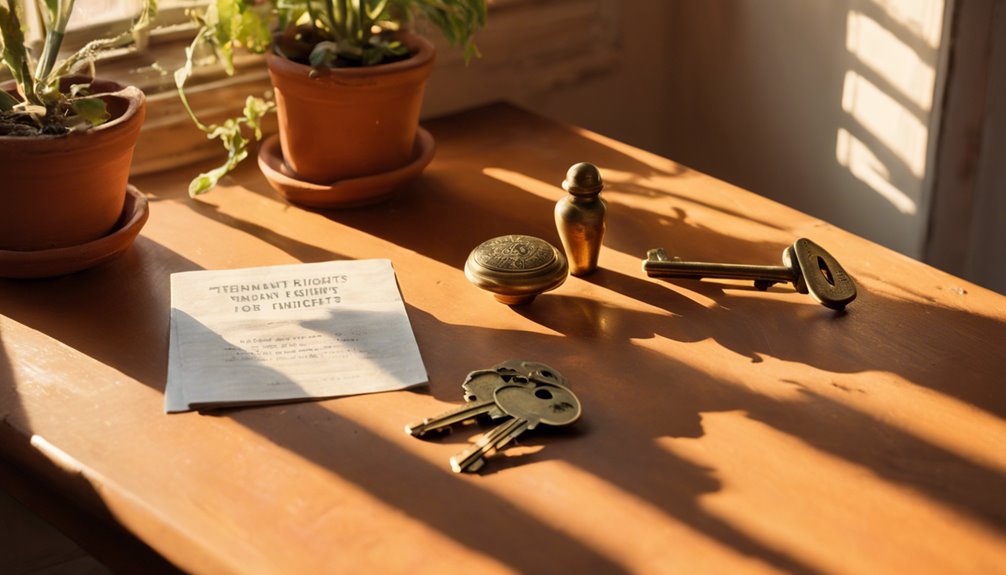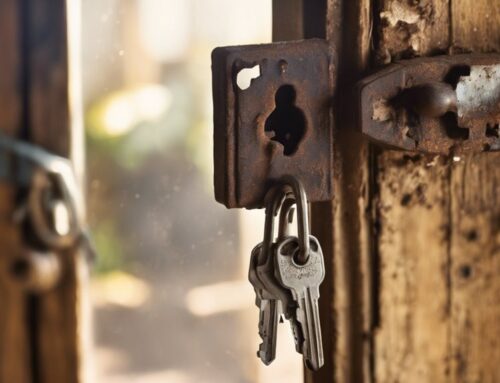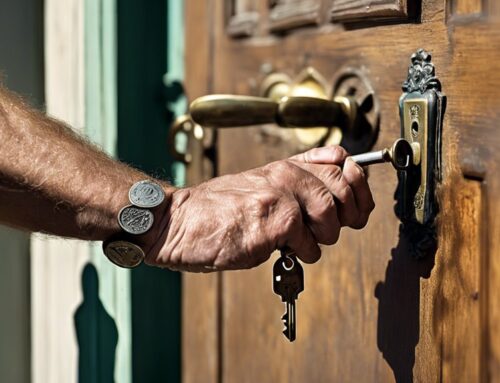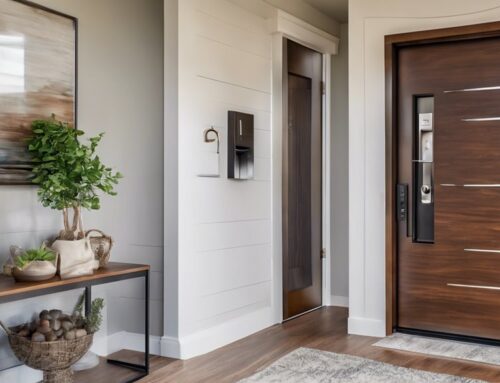As a landlord in Ohio, you need to grasp the intricacies of tenant rights regarding lock changes. Tenants can request a lock change under certain circumstances, and you have specific obligations to fulfill. Ignoring these regulations could lead to legal complications that might affect your rental business. Understanding the request process and your responsibilities is essential, but the implications don't stop there. What happens if you change the locks without permission, or how do you handle a tenant who's made an unauthorized change? Let's explore these pressing issues.
Key Takeaways
- In Ohio, landlords cannot change locks without a court order as it constitutes illegal self-help eviction.
- Tenants must receive written notice for any lock change requests, and compliance with state lock laws is essential.
- If a tenant requests a lock change due to domestic violence, landlords must act within 48 hours of receiving the request.
- Unauthorized lock changes by tenants can lead to legal implications, as lease agreements typically prohibit such modifications without landlord approval.
- Landlords must provide keys to new locks within 24 hours of a change and cannot retaliate against tenants for requesting locks be changed.
Understanding Tenant Rights
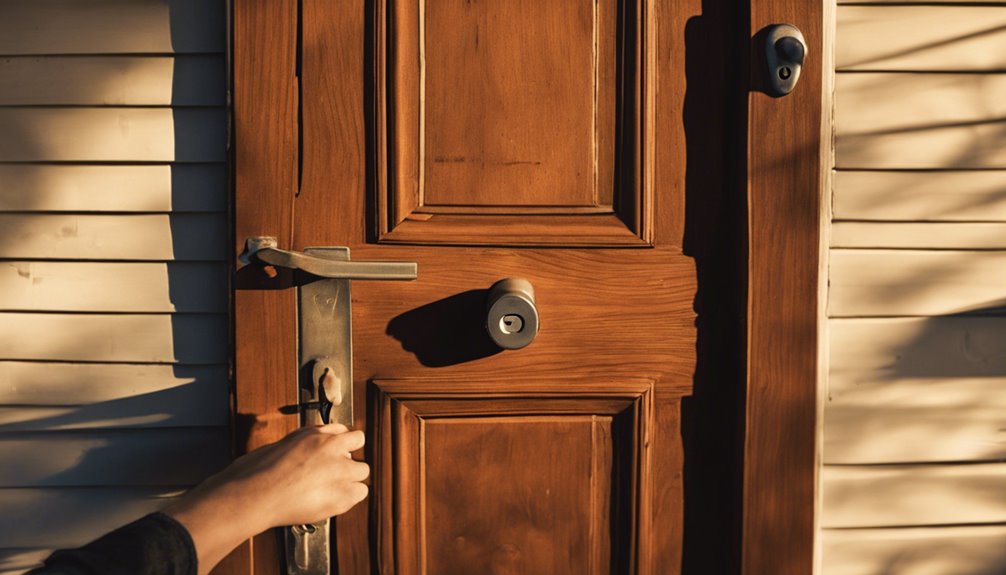
Understanding your tenant rights in Ohio is essential, especially since they guarantee you have a safe, habitable living environment. As a tenant, you're entitled to live in a rental unit that meets all local and state health and safety standards. This means your landlord must guarantee that the property has functioning utilities, including sufficient water, hot water, and reasonable heat—you shouldn't have to endure uncomfortable living conditions. Additionally, landlords must ensure they are compliant with lock picking laws when changing locks to avoid potential legal issues.
When it comes to necessary repairs, you have the right to request them, and your landlord is obliged to address such requests within a reasonable timeframe, often within 30 days of your written notice. If your landlord fails to uphold these obligations, they may face civil penalties, emphasizing the importance of your rights. Additionally, landlords must provide habitable living conditions and comply with local housing codes, which underscores the landlord responsibilities you can hold them accountable for. After an eviction, landlords are legally required to follow specific procedures for changing locks to ensure tenant security.
Compliance with health codes isn't just a formality; it's integral to your well-being. Understanding these rights empowers you to advocate for your needs, guaranteeing the property isn't only livable but also conducive to your happiness.
Moreover, familiarity with your tenant rights enhances your sense of freedom, as it shields you from potential exploitation. You're not just paying for a space; you're entitled to a quality standard of living, and knowing these rights equips you to challenge any unjust situations that may arise.
In short, assert your rights, seek out quality housing, and hold your landlord accountable for maintaining a safe, habitable environment. Remember, freedom often starts with understanding your rights.
Lock Change Requests Process

When you need to request a lock change, it's vital to follow your landlord's submission requirements, which often involve written notice. Timely communication is important, as landlords typically have specific response timelines for such requests. Compliance with state laws regarding landlord lock responsibilities can further support your request. Additionally, landlords must also consider key duplication laws when processing lock change requests to ensure the security of the property. Understanding these processes can help guarantee your safety and rights are upheld without unnecessary complications. Furthermore, landlords should be aware of the importance of regulatory compliance to avoid potential legal issues when executing lock changes.
Request Submission Requirements
To initiate a lock change request in Ohio, you must first obtain your landlord's permission unless you're facing an emergency or dealing with domestic violence.
Submit your request in writing to create a clear record of communication. Outline your reasons, such as security concerns or malfunctioning locks, to provide valid justification for your request. It's important to note that tenants generally lack the right to change locks without landlord consent. Additionally, be aware that Ohio law requires the use of digital and smart locks that comply with specific safety standards when installed, including state safety regulations.
It's vital to articulate a reasonable cause for changing the locks to minimize potential disputes. Confirm the request includes necessary details, like the type of lock being proposed.
Your landlord is required to review your request fairly and can deny it only with a valid reason. They must also provide their approval in writing to prevent misunderstandings.
If your landlord grants permission, be prepared to give them a new key within a specified timeframe—typically five days.
In emergencies, while you can change the lock immediately, notifying your landlord and detailing the new lock is vital. Remember, maintaining access for your landlord is important, as failing to provide a key could lead to further issues, including the landlord rekeying the locks and charging you for the expenses.
Timeline for Lock Changes
After securing your landlord's permission for a lock change, it's important to be aware of the timeline involved in the process.
If you're dealing with a situation involving domestic violence or menacing by stalking, the lock change must occur within 48 hours after your landlord receives the necessary notice and court order. Additionally, your landlord is obligated to provide keys to the new lock to you and any remaining cotenant within 24 hours of the change. In cases of emergency lockouts, it's advisable to contact a licensed mobile locksmith service for prompt assistance.
Should your landlord fail to act within those 48 hours, you're legally permitted to change the lock yourself, but you must do so competently and offer a key to the landlord and other cotenants within 24 hours.
Be mindful that you're responsible for reimbursing your landlord for the actual lock changing expenses within 30 days.
If your landlord makes illegal changes, you're entitled to regain access using reasonable means, such as calling a locksmith, as long as you can prove your residency. It's important to understand that locksmiths in Ohio play a crucial role in ensuring legal access during such situations.
Always document your actions, and don't hesitate to involve authorities if necessary to assert your rights and regain access to your home.
Responsibilities of Landlords

Landlords in Ohio bear significant responsibilities to secure their properties and meet health and safety standards while providing a habitable environment for tenants. This includes compliance with all applicable building, housing, health, and safety codes.
You must make necessary repairs promptly and keep the premises in a fit and habitable condition. It's important to maintain fundamental facilities, including plumbing, electrical systems, heating, ventilation, and air conditioning. If your property has four or more units, you're also responsible for arranging waste removal. Consider engaging certified technicians to ensure that any security upgrades meet professional standards.
Safety and habitability are your top priorities. Keep both the premises and common areas safe and sanitary. Provide appropriate disposal receptacles for waste and confirm that your property is structurally sound and compliant with health codes.
If your building has elevators, you must maintain them, just as you should guarantee consistent heating.
Interaction with tenants is another key responsibility. You must provide reasonable notice before entering their units and respect their privacy rights. It's necessary to include your name and address in lease agreements, along with that of any authorized agent.
When violations occur, such as controlled substance issues, it's your duty to take swift action for eviction.
Lastly, compliance and transparency are foundational. Disclose the identity of any representatives acting on your behalf and make sure you follow all necessary legal guidelines. Additionally, you should consider installing high-security locks to enhance property security standards and ensure the safety of your tenants.
Timely return of security deposits and proper lease agreements are essential to maintaining trust and respect with your tenants.
Legal Implications for Lock Changes
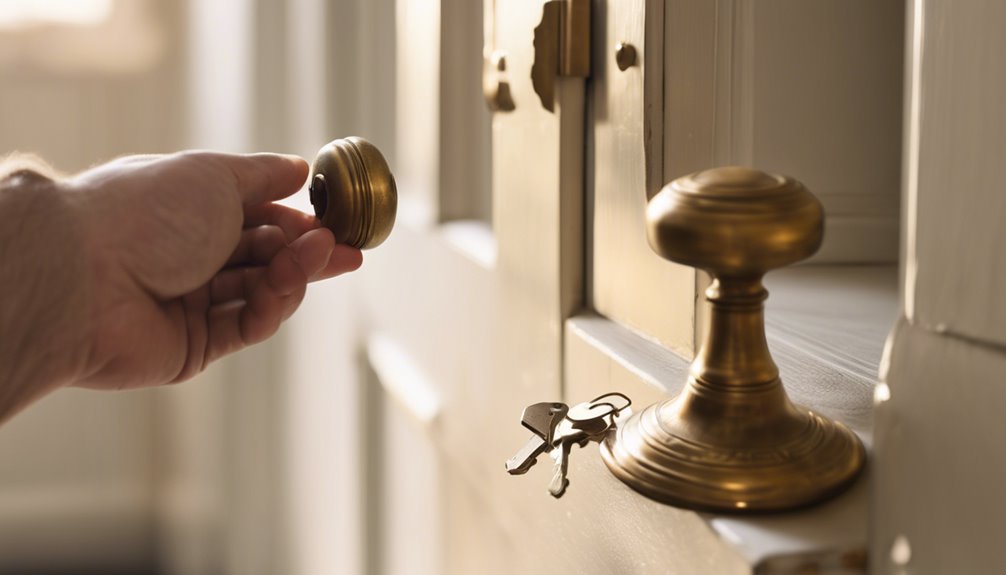
While it might seem tempting to change the locks for security reasons, doing so without permission can lead to serious legal ramifications for tenants in Ohio. As a tenant, you typically don't have the right to modify locks without your landlord's approval. Lease agreements often include explicit terms prohibiting any changes to the property, which includes locks.
If you proceed with this unauthorized action, you may breach your lease, potentially leading to eviction or other legal actions. Ohio law emphasizes the necessity of functional security devices but doesn't mandate landlords to change locks for new tenants. However, landlords must guarantee that exit doors have working deadbolt locks.
Should you change locks without permission, your landlord has the right to revert them and charge you for any expenses incurred. Additionally, damage caused during the lock-changing process could lead to additional costs deducted from your security deposit.
It's vital to remember that landlords can't change locks or take possession of a property without a court order. If a landlord attempts to do so, it's considered illegal self-help eviction. In emergencies, landlords may enter without notice, but generally, they must provide 24 hours' notice.
If your landlord disrupts your occupancy or changes locks without proper procedures, seek legal assistance promptly to safeguard your rights. Understanding these legal implications can help you make informed decisions and maintain your freedom within your leased property.
Tenant Liabilities and Obligations
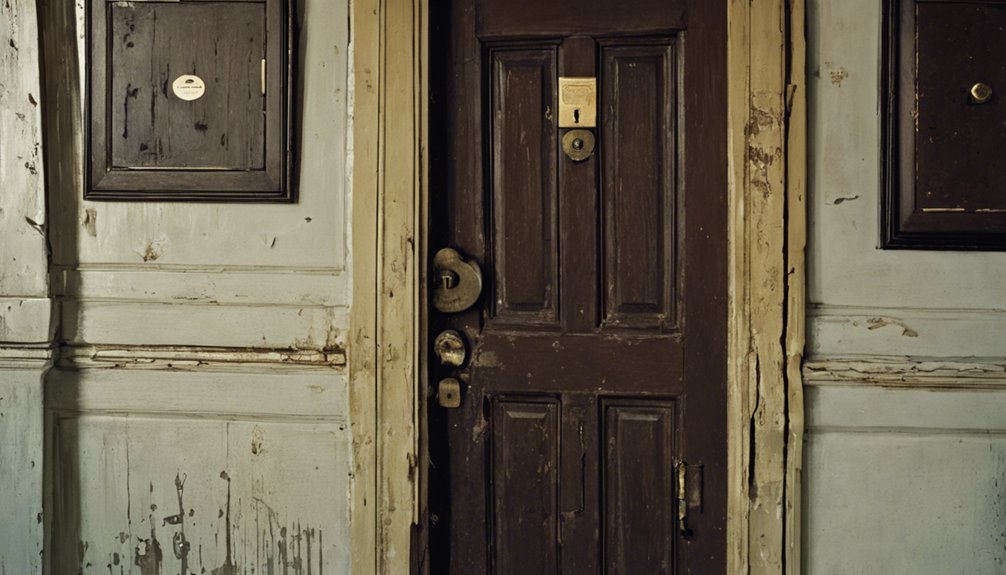
Understanding the legal implications of lock changes leads to a broader recognition of tenant liabilities and obligations in Ohio. As a tenant, your primary responsibility revolves around timely rent payments. You must pay the full rent on the due date, adhering to your lease terms. Remember, you can't substitute your security deposit for rent without your landlord's written consent.
Maintaining the property's condition is equally important. You need to keep your unit safe, sanitary, and operational. This means using plumbing and electrical fixtures as intended and managing the major appliances provided by the landlord.
Don't forget the significance of proper waste disposal and addressing minor repairs as they arise. Compliance with state and local housing codes is non-negotiable. You should avoid disturbing other tenants, guarantee that you don't damage any part of the premises, and refrain from illegal activities, especially concerning controlled substances.
Additionally, allowing landlords reasonable access to your rental unit enhances cooperation and communication regarding property maintenance. Furthermore, you should foster a respectful community atmosphere. Conducting yourself in a way that respects neighbors' right to peaceful enjoyment is essential; this applies to any guests you invite.
Maintenance and Replacement Duties

When it comes to maintenance and replacement duties, tenants and landlords share specific responsibilities outlined by Ohio law. Understanding these obligations is essential for both parties to foster a healthy rental relationship. Here are four key areas to focus on:
- Building Codes: Landlords must comply with all relevant building, housing, health, and safety regulations.
- Habitability: It's the landlord's duty to guarantee the property remains fit for living by making necessary repairs promptly.
- Fixture Maintenance: All essential systems—like plumbing and electrical—need to be maintained in safe working order.
- Timely Repairs: Serious issues must be resolved within 24 hours, while other repairs generally should be addressed within 30 days.
Landlords are required to maintain safe and functional heating sources, guarantee consistent running water, and fix any electrical or plumbing issues.
If there's a pest problem, it's on the landlord to take action too. It's important to document repair requests and any communication with your landlord for future reference.
Furthermore, suppose tenants face unaddressed repair needs. In that case, they've options: they can seek legal action, cancel their lease, or withhold rent while placing it in an escrow account—these rights serve as a safeguard against landlord negligence.
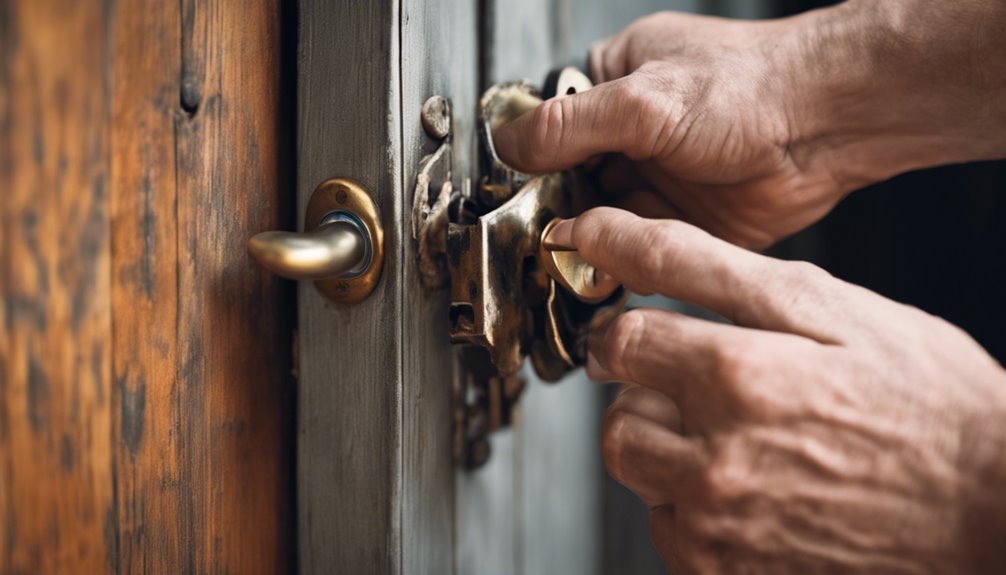
As you navigate your rights as a tenant in Ohio, being aware of state and local regulations regarding lock changes is vital. Landlords must adhere to specific legal requirements that govern their actions.
For instance, if you're a victim of domestic violence or stalking, a court order permits you to request a lock change, which the landlord must execute within 48 hours. However, remember that you're responsible for reimbursing the landlord for the actual costs incurred.
It's important to understand your rights in situations where landlords misuse lock changes. It's illegal for them to change locks or shut off utilities as a tactic to force eviction. If they attempt to change locks without following proper eviction procedures, you're entitled to re-enter the property.
Furthermore, if your landlord fails to complete the lock change, you can do it yourself, provided you deliver new keys to them and any other cotenants within 24 hours.
In matters of notification, landlords are obligated to supply new keys immediately after changing locks. They must also comply with any stipulations outlined in protection orders, ensuring that banned individuals are escorted by law enforcement if allowed on the premises.
Always keep in mind that landlords aren't shielded from legal repercussions if they neglect these regulations. As you assert your rights, understanding these nuances will empower you to maintain control over your living space.
Frequently Asked Questions
Can Tenants Change Locks for Reasons Other Than Domestic Violence?
You can't change locks without your landlord's permission unless there's a legitimate reason, like malfunctioning locks that haven't been addressed.
Unauthorized changes typically breach agreements, leading to potential costs deducted from your security deposit.
It's best to communicate with your landlord about any issues, document everything, and seek professional help for lock problems.
Always consider the legal implications before taking action, as doing so could lead to unwanted disputes.
What Does "Habitable" Mean in Rental Properties Regarding Lock Maintenance?
When you think of "habitable" in rental properties, it refers to your right to a safe and secure living environment. This includes well-maintained locks, essential for protecting your home.
If locks are malfunctioning or inadequate, it undermines your safety, violating the warranty of habitability. You should expect landlords to address these issues promptly, ensuring your residence meets basic security standards.
A home isn't truly habitable without reliable locks and overall security.
Are Landlords Required to Provide Security for Lock Changes?
Imagine you've just moved into a new apartment, and you feel uneasy about the previous tenant's access.
Landlords aren't legally bound to provide security for lock changes unless a tenant requests it for safety, like in domestic violence cases.
If you feel vulnerable, you should ask your landlord to change the locks.
While they're obligated to accommodate safety requests, you'll likely be responsible for covering the costs involved in the change.
How Quickly Must Landlords Respond to Lock Change Requests?
You need to respond quickly to lock change requests.
Specifically, you must change the lock within 48 hours after receiving a written request and a copy of a court order from the tenant.
If you fail to meet this timeframe, the tenant can change the lock on their own without your permission.
It's crucial to act promptly to avoid legal consequences and maintain a positive landlord-tenant relationship.
Can a Tenant Refuse to Give a New Key to the Landlord?
Imagine a fortress where you guard your treasures—your home. If you change the locks and refuse to give the key to your landlord, you're stepping into risky territory.
Legally, a tenant can't withhold access without consequences. While it may feel like a shield of security, you might face eviction or legal action for violating your lease.
It's essential to remember that collaboration guarantees a harmonious living experience for both parties.
Conclusion
In the intricate dance between landlords and tenants, understanding lock changes is key to fostering harmony. By respecting tenants' rights and adhering to Ohio's regulations, you not only protect your interests but also cultivate a safe and respectful living environment. Remember, open communication and prompt action can turn potential conflicts into cooperative resolutions, ensuring your rental space remains a sanctuary for all. Stay informed and proactive—it's the golden key to successful property management.

